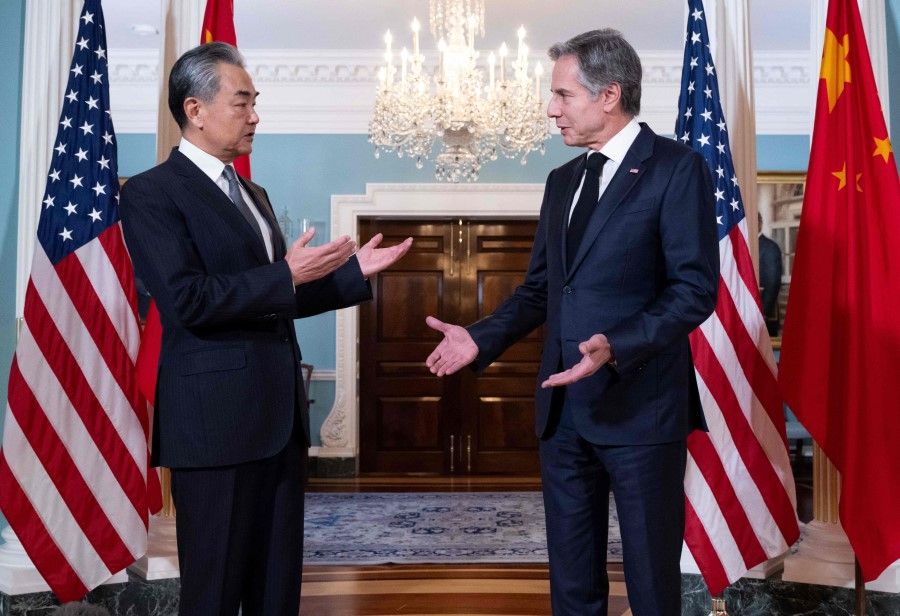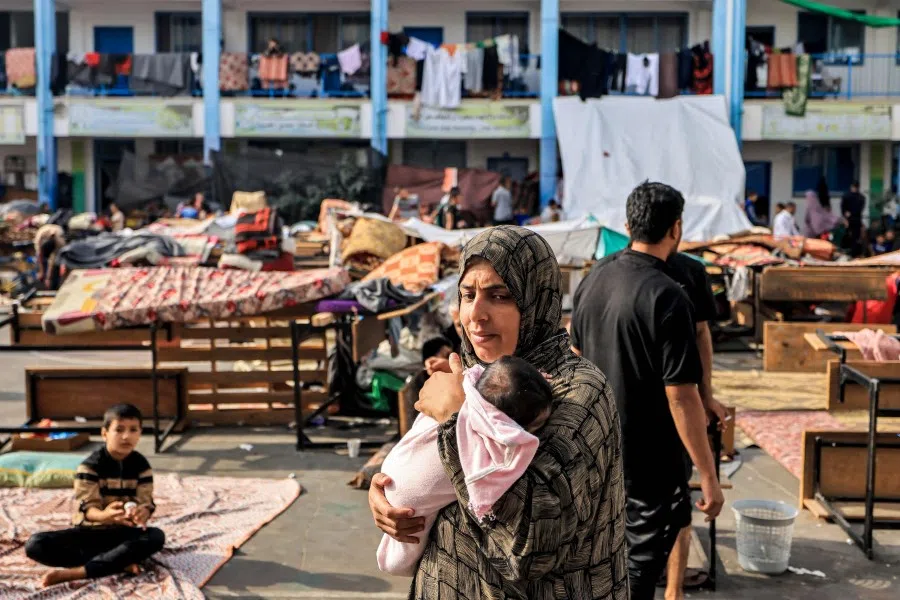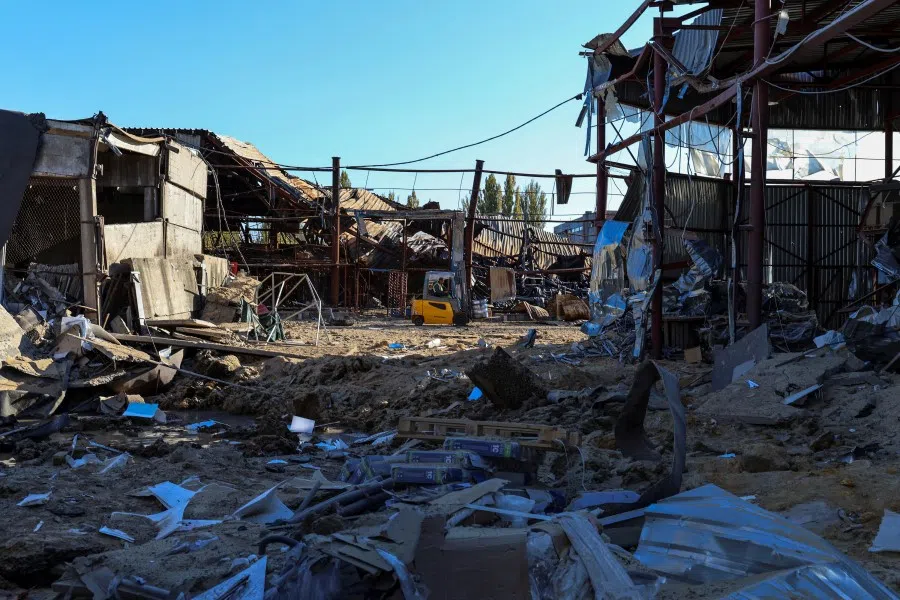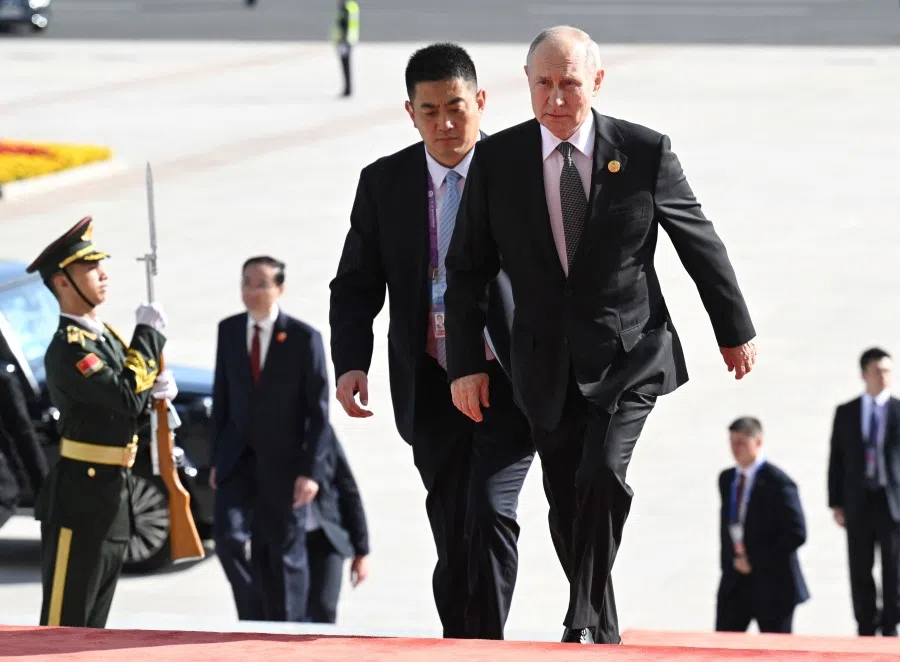Global crises build common ground for China-US cooperation
Academic Chen Gang notes that while China-US relations remain tense, global issues such as the ongoing war in Ukraine, revived conflict in the Middle East and the worsening threat of climate change are coming together to form growing common ground for the two powers to work together and increase dialogue and cooperation.

Despite ongoing tensions, high-level exchanges between the US and China have increased this year. Notwithstanding the disruptions caused by the balloon incident in February, US Secretary of State Antony Blinken and several senior officials continued their visits to Beijing.
Recently, a delegation of US senators led by Senate Majority Leader Chuck Schumer, visited China for the first time since the outbreak of the pandemic. Meanwhile, Chinese Politburo member and Foreign Minister Wang Yi made a trip to the US, hoping to arrange another meeting between the two heads of state before the year ends and return the US-China relationship to a stable path of growth.
Multiple crises driving China-US dialogue
Several international and domestic factors have contributed to the recent warming of US-China relations. However, the primary causes of the resumption of talks and communication between the two nations are the rapidly deteriorating global governance and security environment as well as the emergence of numerous crises.
In the face of multiple challenging crises such as the conflict in the Middle East, the Russia-Ukraine war and climate change, there is a growing consensus between the two countries in areas such as global governance and regional stability.
Both sides need to establish a certain level of understanding and consensus to face these challenges together; otherwise, the global situation could further descend into chaos and instability.

Following then US House Speaker Nancy Pelosi's visit to Taiwan last year, official exchanges and dialogue between the US and China were halted, and China announced the suspension of cooperation with the US in critical areas such as climate change, military exchanges and combating international crime. However, since the meeting between US President Joe Biden and Chinese President Xi Jinping in Bali in November last year, the relationship between the two countries has started to warm up. After a brief suspension, military exchanges were reinstated, and a US delegation attended the 10th Beijing Xiangshan Forum in October this year.
The realisation by both parties that the world is currently experiencing numerous crises has played an important part in how China-US relations have weathered events such as Pelosi's visit to Taiwan and the balloon incident, and expanded dialogue and exchanges into the security, military and climate change realms. Both sides need to establish a certain level of understanding and consensus to face these challenges together; otherwise, the global situation could further descend into chaos and instability.
... the US, as an ally of the Philippines, shares a joint defence responsibility. If this hot issue also escalates into conflict, this will be a significant test of the US's global strategic and military capabilities.
This year has seen various crises and disasters. The Russia-Ukraine conflict has not subsided, and a significant humanitarian disaster has emerged as a result of the war that has reignited in the Israel-Palestine region, which had been relatively calm. The situation in the Middle East shows no sign of easing, and the conflict may expand to involve more countries. This region is also crucial for global oil supply, and an escalation of the conflict could lead to a sharp increase in oil prices, exacerbating the already severe inflation in many countries.
As a superpower, the US has been preoccupied with the Ukraine war, incurring significant military aid expenses and sparking fierce debate in the US Congress over funding for Ukraine. Western ammunition reserves have also been depleted, and it remains a big question whether the US and its allies' military industries can handle the two fronts of the protracted Ukraine conflict and the fresh outbreak of the Middle East crisis.

Tensions between China and the Philippines over the South China Sea are also escalating, and the US, as an ally of the Philippines, shares a joint defence responsibility. If this hot issue also escalates into conflict, this will be a significant test of the US's global strategic and military capabilities.
Mutual need for cooperation
China is also seeking to ease its tense relations with the US. The Chinese government currently faces the challenging task of reviving economic growth and further opening up. China's real estate debt crisis, frequent natural disasters, high youth unemployment rates and existing financial risks are looming, and mishandling them could trigger a financial storm. The three-year zero-Covid policy has severely depleted local coffers, and stimulating investment and consumption is a government priority.
So, although the US and China see each other as their primary strategic competitors, both countries recognise that when the situation becomes dire, they need to strengthen dialogue and cooperation to jointly find solutions to these crises. Otherwise, there is a risk of the global situation slipping into chaos and turmoil, as geopolitical scholar Zbigniew Brzezinski predicted.
During Brzezinski's time, the threat of climate change was not as widely recognised, but this year, many countries have experienced unprecedented heatwaves, wildfires and heavy rainfall. According to UN Secretary-General Antonio Guterres, the climate crisis has "opened the gates to hell". If China and the US - the world's two largest greenhouse gas emitters - do not responsibly cooperate on this issue, the consequences could be catastrophic.
Both countries are currently looking for respite and common ground, building up strength in crisis management to overcome difficulties and seeking an advantage in the next round of great power competition.
Prisoner's dilemma
Reaching consensus amid multiple crises calls for an easing of tensions and strengthening cooperation between the two countries. However, this does not mean that all obstacles hindering the development of bilateral relations have been removed. Even in limited areas of cooperation, the two countries face the prisoner's dilemma in game theory, whereby both sides adopt a betrayal strategy because they believe that the other will similarly betray and hurt their interests.

The most effective way to overcome the prisoner's dilemma is to strengthen communication and eliminate distrust, so that enhancing dialogue and interaction at all levels and in various fields will help improve relations between the two countries. Furthermore, the development of trade and investment also helps link the interests of the people of both countries, improving mutual perceptions.
The variables in current China-US relations are significant. On the one hand, various crises are erupting, requiring some cooperation and dialogue between the two countries. On the other hand, the strategies and attitudes of the two countries in dealing with these crises still differ significantly. With the ongoing Ukraine conflict, China stuck to inviting Russian President Vladimir Putin to attend the Belt and Road Forum, sparking dissatisfaction among the US and its Western allies.
China and the US also have very different views on Middle East issues, and the US technological boycott against China has affected China's cooperation with the US on climate change. The US presidential election next year will also have a new impact on China-US relations. Both countries are currently looking for respite and common ground, building up strength in crisis management to overcome difficulties and seeking an advantage in the next round of great power competition.
This article was first published in Lianhe Zaobao as "中美共同语言增多".



![[Big read] When the Arctic opens, what happens to Singapore?](https://cassette.sphdigital.com.sg/image/thinkchina/da65edebca34645c711c55e83e9877109b3c53847ebb1305573974651df1d13a)
![[Video] George Yeo: America’s deep pain — and why China won’t colonise](https://cassette.sphdigital.com.sg/image/thinkchina/15083e45d96c12390bdea6af2daf19fd9fcd875aa44a0f92796f34e3dad561cc)
